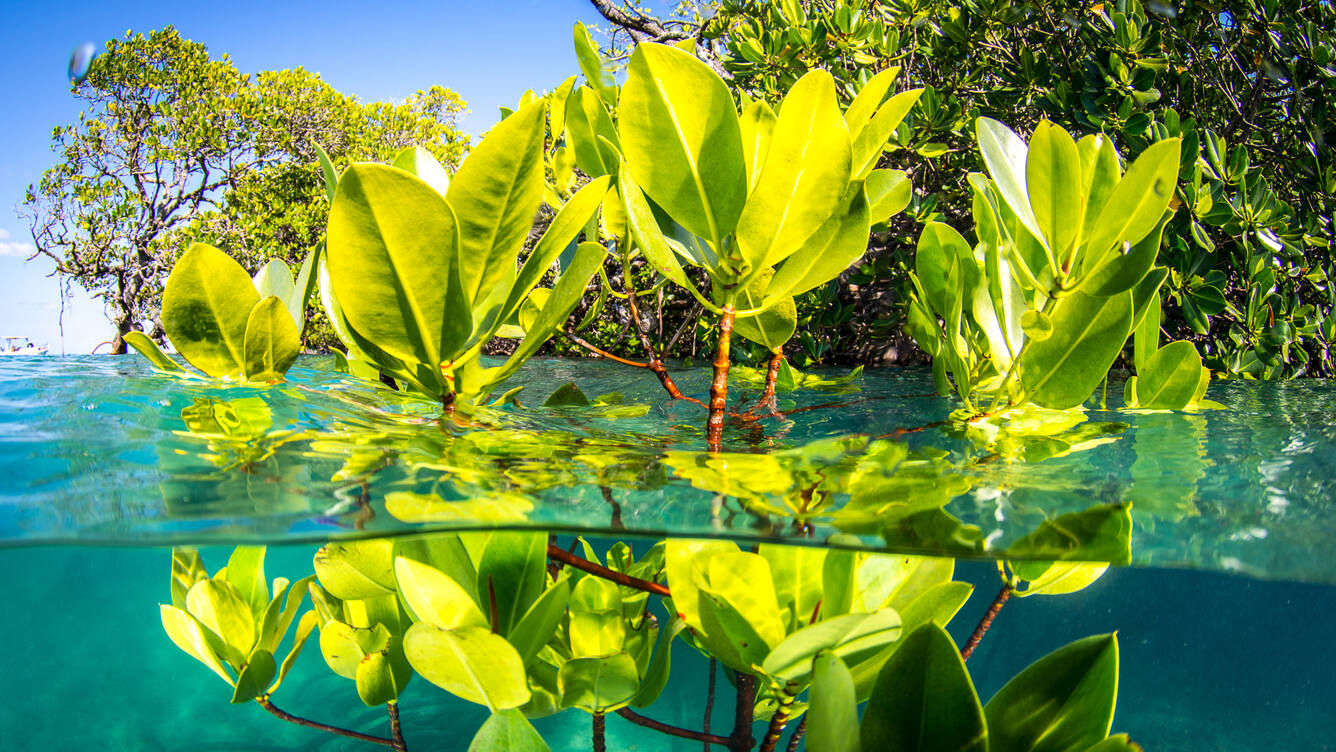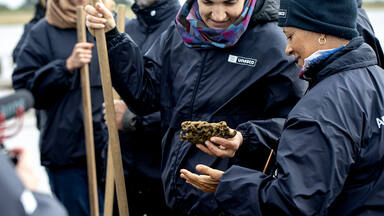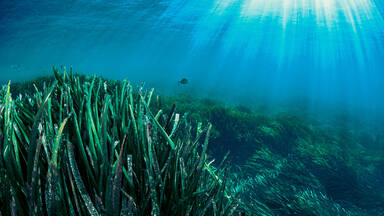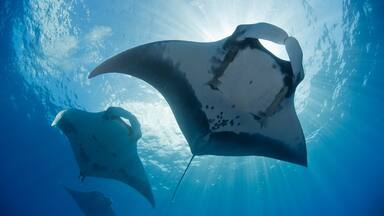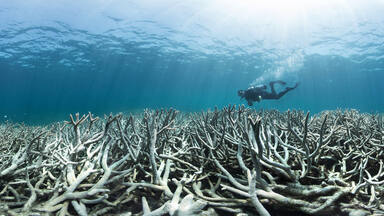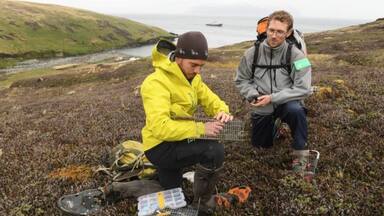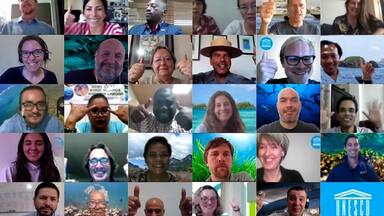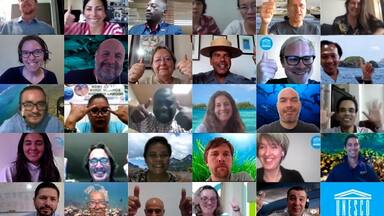Online meeting: Financing Marine Protected Areas through Blue Carbon Credits
On 26 September (8.30am-10.00am, Panama time; 3.30pm-5.00pm, Paris time, France; 7.00pm – 8.30pm Kolkata time, India), experts in carbon credit financing for conservation will convene virtually to share first-hand insights on how blue carbon can help close the financing gap across marine protected areas (MPAs).
Programme (1,5 hour)
- Opening and welcome (5min)
- Blue Carbon Introduction – Blue Carbon and its role in climate mitigation and adaptation by UNESCO (10min)
- Introduction to the work of UNESCO on blue carbon by UNESCO (5min)
- What does it take to finance MPAs through Blue Carbon? by VERRA (10min)
- Finance Blue Carbon: An Investor Perspective? by Salesforce (10min)
- Case Study: Protecting Mangroves and Marshes in Colombia through blue carbon credits by INVEMAR (10min)
- How to prepare your MPA for blue carbon financing? by Conservation International (10min)
- Moderated Questions and Answers (25min)
- Closing word (5min)
Over the past decade, research has solidified the significant role played by blue carbon ecosystems—seagrass meadows, tidal marshes, and mangroves—in mitigating the effects of climate change. When well protected, these ecosystems act as natural "carbon sinks," absorbing carbon dioxide from the atmosphere.
Globally, UNESCO World Heritage marine sites host at least 21% of the world’s blue carbon ecosystems, and 15% of the world’s blue carbon assets.
Conserving blue carbon ecosystems contributes to mitigating climate change and helps nations avoid additional emissions of CO2 and other greenhouse gases. Yet, central for these ecosystems to function as carbon sinks is their protection.
Financing conservation of blue carbon ecosystems can be boosted through blue carbon credit strategies, whereby countries earn carbon credits for demonstrating carbon benefits from ecosystem conservation and restoration. Blue carbon strategies can restore vital ecosystem services and crucially help nations deliver on their commitments under the Paris Agreement. To date, however, only a limited number of countries have incorporated blue carbon strategies into their climate change policies.
This online meeting will bring together global experts who will summarise the core principles and best practices in developing and implementing blue carbon projects within MPAs. The event aims to raise awareness about investor preferences for financing such projects and provide guidance to MPA managers and States Parties seeking to enhance their readiness for blue carbon financing. A case study from the Cispatá MPA in Colombia will be presented, where carbon credits are currently financing local conservation, providing practical insights and lessons learned.
Due to their status as the world’s flagship marine protected areas, UNESCO World Heritage marine sites are uniquely positioned to drive change and innovation, help set global standards in conservation excellence, and serve as beacons of hope in a changing ocean. This online meeting is made possible with the support of the Principality of Monaco and in partnership with the Intergovernmental Oceanographic Commission of UNESCO.
Featured Experts
Liz Guinessey, Manager of Food and Blue Carbon Innovation - VERRA
Liz is responsible for advancing Verra’s food systems and blue carbon innovation workstreams. In this capacity, she explores opportunities to scale up nature-based innovation activities that can reduce the climate impact of global food systems and contribute to sustainable coastal and marine management. Liz coordinates and provides technical input to the development of Verified Carbon Standard (VCS) methodologies for natural climate solutions, including the conservation and restoration of blue carbon ecosystems.
Dr Paula Cristina Sierra-Correa, Head of Marine Research and Information - Colombia Marine and Coastal Research Institute (INVEMAR)
Paula is a marine biologist, with a PhD in mangrove-based adaptation and mitigation to climate change. She has expertise in coastal planning and policy, co-leading the first blue carbon programme on mangroves certified by Verra. Since 2014, she allows serves as the Coordinator of Regional Training Center for Latin America into the OTGA strategy of IODE-IOC-UNESCO. She is a co-chair of IODE-IOC-UNESCO for period 2023-2025.
Dr Whitney Johnston, Director of Ocean Sustainability - Salesforce
Whitney works to leverage the full power of Salesforce for the benefit of our oceans. Prior to Salesforce, she served as Ocean Policy Adviser in the office of U.S. Congressman Sam Farr as a Knauss Marine Policy Sea Grant Fellow and she worked for IdeaScale where she led strategy to help large organizations innovate. Whitney holds a Ph.D. in Chemical Oceanography from MIT and Woods Hole Oceanographic Institution and a BA in Chemistry from UC Berkeley.
Dr Emily Pidgeon, Vice President of Ocean Science and Innovation - Conservation International
Emily leads institutional programs integrating ocean science and research with effective conservation strategies and field implementation globally. This has included a particular focus on the impacts of climate change on coastal and ocean communities and environments. She leads the Blue Carbon Initiative - a global partnership focused on recognizing the carbon and other values of coastal ecosystems and increasing conservation and restoration of these coastal ecosystems. Dr Pidgeon is co-chair of the International Blue Carbon Scientific Working Group and has lead implementation of blue carbon conservation in priority countries globally. Dr. Pidgeon has a broad background in marine and coastal science and engineering.
